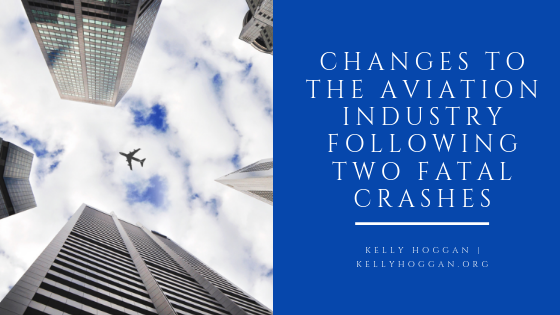In the aftermath of two fatal crashes just months apart, both involving Boeing 737 Max aircraft, citizens and aviation professionals alike are left wondering what went wrong, and what will be done to prevent this from happening again. As investigators continue to uncover more information as to the cause of the accident, it is becoming more clear that updates to regulations and aircraft software are both crucial elements of progressing toward a more safer and secure industry.
The first of the two accidents involving the Boeing 737 Max aircraft occurred on October 29th in Indonesia. The airliner, Lion Air, crashed killing 189 people on board. Upon investigation, investigators discovered that the automated flight control system, known as the Maneuvering Characteristics Augmentation System, or MCAS, repeatedly forced the plane to nose dive downward due to incorrect data and a faulty sensor. The MCAS is a software meant to prevent airplanes from stalling. However, the pilots on board were not aware of the system and how to disengage it.
Just months later at the beginning of March, the same aircraft flown by Ethiopian Airlines crashed killing 157 people. While it is still early in the investigation of this crash, early findings are showing striking similarities in the cause of both crashes. While it is not yet clear if the crashes were both caused by the system, it was found that both planes crashed quickly after takeoff and appeared to follow similar flight patterns suggesting a struggle to keep the plane up.
Following both fatal crashes, the U.S. Aviation Regulator will make changes to the oversight approach to ensure the safety and security of the aircraft moving forward. Officials from Boeing have developed new upgrades to the software that is present in the MCAS system. These upgrades include getting rid of the repeated nosedive of a plane if a stall is detected, and instead will only act once. The system will also receive data from two angle sensors, instead of just the one in the previous system. While the FAA participated in the testing of this system, many countries have decided to test the aircraft systems on their own prior to allowing the Boeing 737 Max to fly. This is mainly due to transparency within the certification process requested by aviation professionals, as many pilots were unaware of the MCAS on the planes they were flying. Lawmakers are also questioning the trustworthiness of the certification process through the FAA.
Kelly Hoggan resides in Washington D.C. and is the founder of H4 Solutions, a business which provides aviation security consulting services. With a career spanning nearly three decades in aviation security, operations, and technology, Kelly has been able to utilize that leadership experience to advise clients in the transportation section focusing on aviation security and aviation operations.


